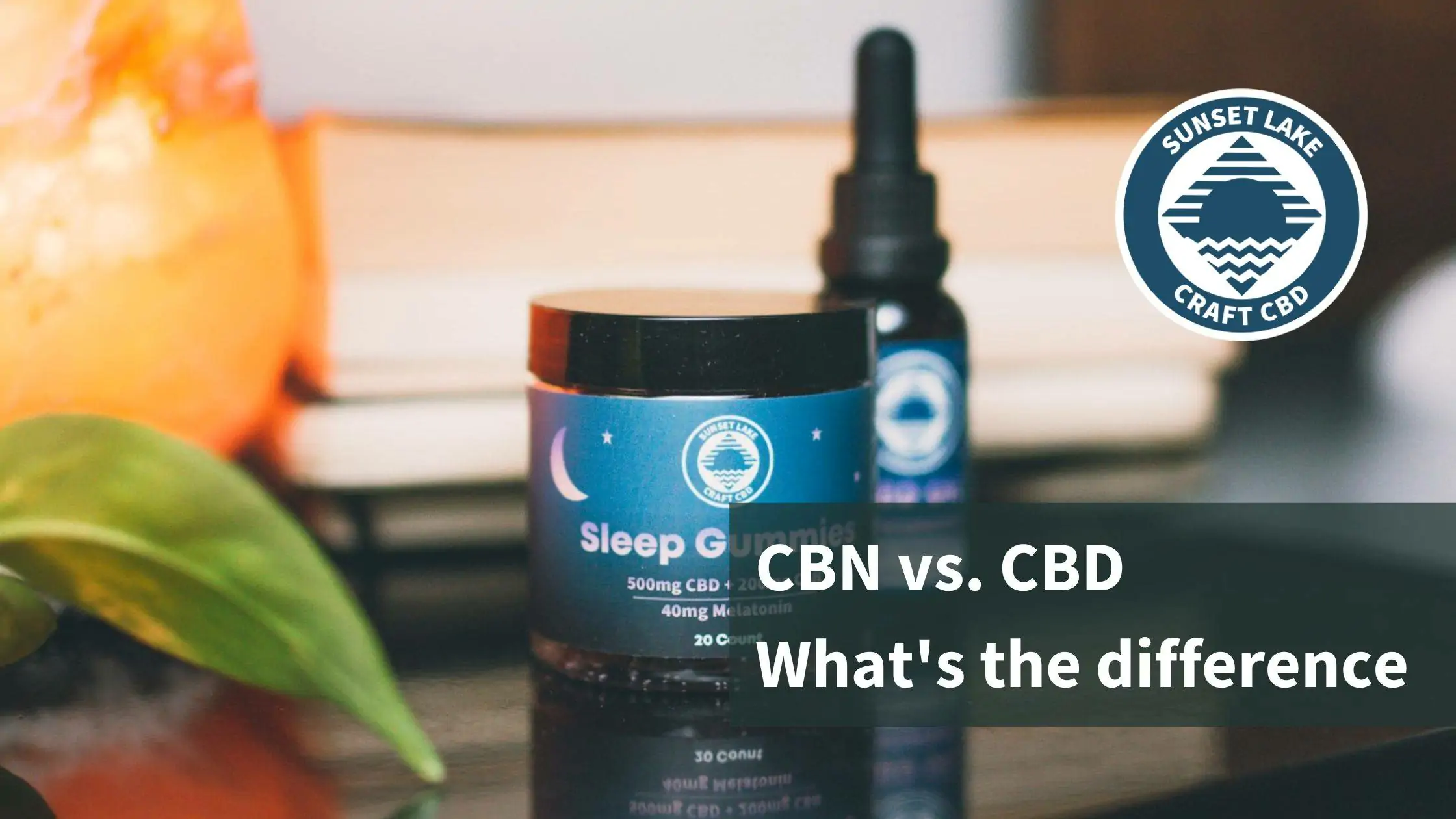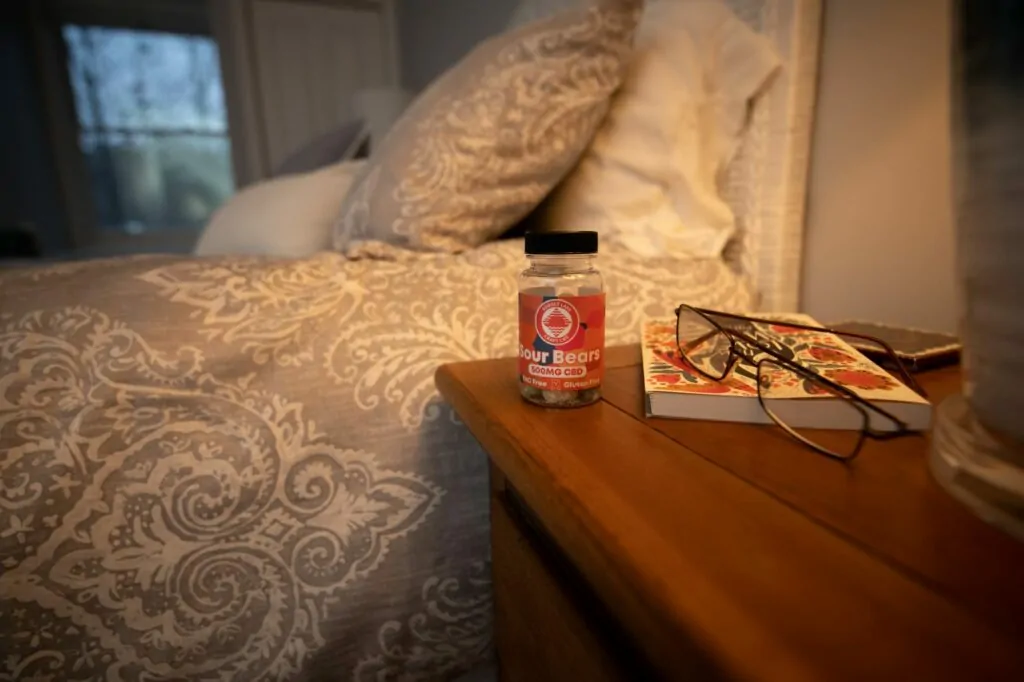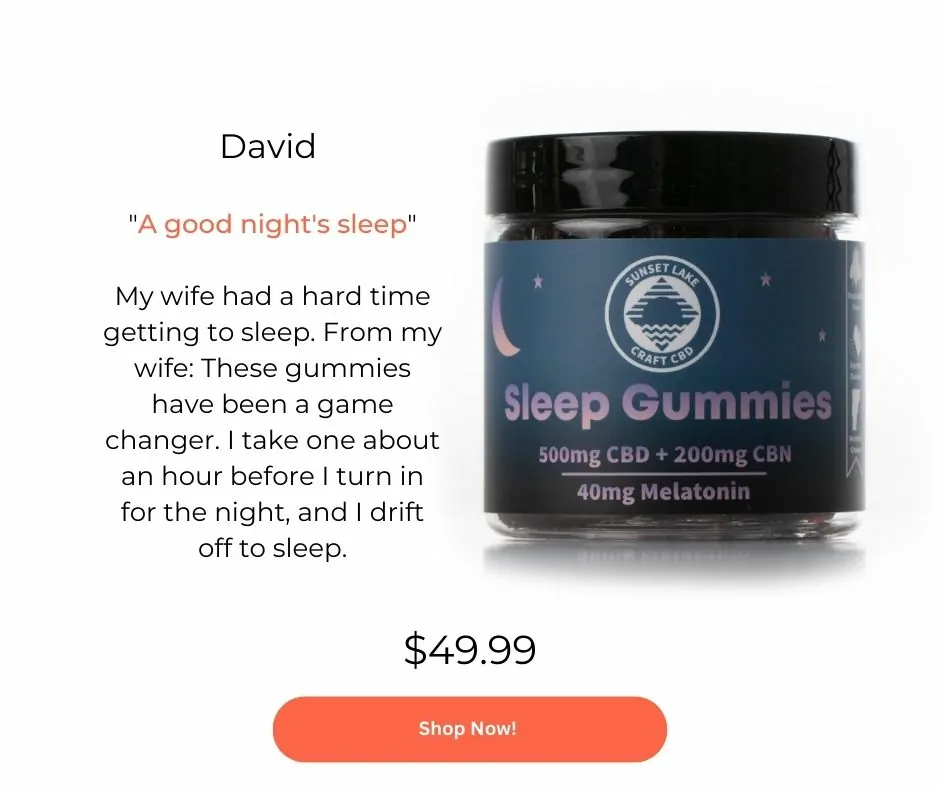No products in the cart.
CBN vs. CBD: What Are The Differences?

Both CBD and CBN are naturally occurring cannabinoids produced by the hemp plant, although their unique characteristics do not make them substitutes for each other. CBD, the more popular of the two, is the subject of extensive medical research as of this writing. CBN on the other hand is still relatively new but is being touted by many hemp companies as a silver bullet for all of your sleep problems. How far off the mark are they, and is there really that much of a difference between CBN vs. CBD?
In this post, we’ll explore a few topics:
- What are the similarities between CBN and CBD?
- What are the differences between CBN vs. CBD?
- Are there any benefits to taking CBN?
- Which is better at helping you get to sleep? CBN or CBD?
How Are CBN and CBD Similar?
CBN and CBD Both Come From Hemp
As mentioned in the opening paragraph, CBD and CBN are both naturally occurring cannabinoids produced by hemp and cannabis plants.
CBD is short for Canna-Bi-Diol
Most of the CBD, and to some extent the CBN, you find in a hemp plant will be in the resin glands of a mature flowering female plant. All of these cannabinoids work together in the resin glands to help protect the plant from insects, hungry animals, and mold.
CBN and CBD Both Interact With Your Endocannabinoid System
CBN and CBD are both non-intoxicating cannabinoids. When you consume CBN, CBD, or both, they’ll work their way into your bloodstream and your body will quickly deliver them to your endocannabinoid system— a large network of receptors and enzymes that control a host of bodily functions including:
- Sleep
- Mood
- Appetite
- Memory
- Fertility
- Central nervous system (CNS) development
- Synaptic plasticity
- And many more…
Both CBN and CBD Are Legal Cannabinoids
CBD is the more prevalent of the two cannabinoids, quickly becoming the focus of the hemp farming boom following the 2018 Farm Bill. In short, this iteration of the farm bill defined hemp as any cannabis plant that contained less than 0.3% delta-9 THC by dry weight thereby opening the door for the production, extraction, and sale of other non-intoxicating cannabinoids like CBN.
CBN vs. CBD: What Are The Differences?
Where Does CBN Come From?
CBN and CBD are both produced by hemp and cannabis plants alike. While CBD is produced (by way of its acidic form CBDa) via a flowering cannabis plant’s resin glands, a majority of CBN is not.
CBN is a somewhat unique cannabinoid because it’s mainly produced in hemp and cannabis as a by-product of THC oxidation; meaning that when THC ages and breaks down, it will break down into CBN.
This means that the level of CBN found in your cannabis flower is not determined by genetic factors— like breeding programs used to maximize certain cannabinoid content. Instead, the amount of CBN in your flower is a result of environmental factors like:
- How airtight was the container that your cannabis was stored in?
- Was your cannabis exposed to UV light or excessive heat?
- How old is your cannabis?
If your goal is to maximize the CBN content in your cannabis flower, the best way to achieve that goal would be to keep your flower out of direct sunlight, but in a container that is exposed to fresh oxygen. If your goal is to keep your THC from oxidizing, check out our blog post on bulk flower storage here.
Perceived Use of CBN and CBD
CBD’s potential uses have been and are currently being researched. Some of these effects include:
- Helping reduce the frequency and severity of seizures.
- Helping reduce feelings of nausea
- Anti-inflammatory properties
- Helping the user manage sleep
What is CBN Good For?
CBN, while being one of the first cannabinoids isolated and chemically synthesized is still relatively unknown. So far we know that CBN may help with the following:
Related: Where Should You Buy CBN?
Is CBN Good For Anxiety?
As of now, there are no known anti-anxiety benefits of taking CBN. CBN taken in an effort to manage one’s sleep may help manage an individual’s anxiety as sometimes sleep and anxiety are related.
There have been animal studies that suggest that the CB1 receptor, the receptor that CBN binds with (albeit weakly,) plays a role in managing anxiety levels. In an experiment conducted with mice, the experimental group had their CB1 receptors chemically blocked. This experimental group was less likely (read: more anxious) to explore a new maze.
When a CB1 receptor antagonist was administered to both the control and the experimental group, both groups showed signs of reduced anxiety.

Is CBN or CBD Better for Sleep?
Current research suggests that both CBD and CBN may provide users with some sleep benefits. It’s hard to say which cannabinoid is better for sleep because the data just doesn’t exist yet.
If you really want a good night’s sleep, you should consider taking both CBN and CBD at the same time. A recent study published in 2021 by the Australian Sleep Disorders Research Institute found that a combination of THC, CBN, and CBD taken regularly under the tongue significantly improved insomnia symptoms and self-reported sleep quality in people compared to the placebo group.
CBN vs. CBD: Risks and Side-Effects
CBD is generally considered safe though there are some minor side effects that present when the cannabinoid is consumed in high amounts. The most common are:
- Change in appetite
- Diarrhea
- Nausea
- Dizziness
- Upset Stomach
- Weight change
As of this writing, there aren’t any known side effects of CBN use. That doesn’t mean that there aren’t any, it just means that CBN hasn’t been studied long enough to know what they are.
Frequently Asked CBN and CBD Questions
Are CBN and CBD the same?
No, CBN and CBD are not the same. They are both cannabinoids— yes. But CBD and CBN are two distinct chemical compounds. CBN is much less common than CBD and interacts with your endocannabinoid system’s CB1 receptor, while CBD doesn’t directly interact with any CB receptors.
Can you take CBD and CBN at the same time?
Yes, you can mix CBN and CBD together. In fact, doing so may just produce more powerful desired effects. Research on animals suggests that mixing CBN and CBD to create a small entourage effect is effective for treating pain. Sunset Lake CBD’s Sleep Gummies contain both CBD and CBN.
Some CBD products that are designated “full-spectrum” and some “broad-spectrum” will actually include both CBD and CBN.

